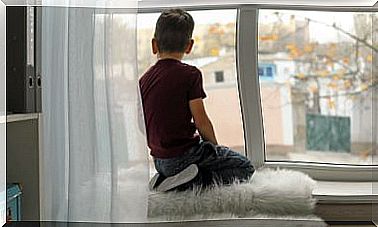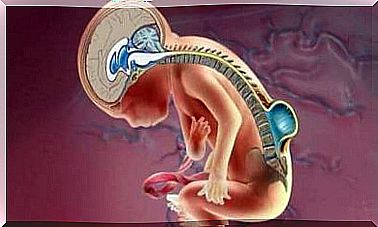What Is Family Support And How Does It Influence Growth

Today, the family is still considered the nucleus of our societies. In addition, this is the first socializing agent in childhood, so its relevance in child development is immense. Thus, children and adolescents who are fortunate to grow up surrounded by family support have an important advantage that will bring them closer to happiness and fulfillment.
This is not only because they will always have someone to trust or to lean on, but because these types of families provide ideal conditions for the formation of a healthy personality. Family support has many aspects and, unfortunately, not all of them are always present. Therefore, if you are a mother, we invite you to know them and try to implement them in your own family.

Types of family support
There is no single definition of family support, as it manifests itself in different ways. In addition, it should be noted that it is not only about the help that parents provide their children, but about a dynamic in which all members are willing to collaborate and act as a team. So what types of family support are there?
Stimulation
Stimulation is one of the first types of family support that becomes apparent from the time the baby is born. And it is that a child, to grow properly, not only needs food and protection, but also requires adequate stimulation. Parents, who are aware of this, take time to provide the child with varied opportunities to explore their environment.
In the early years, this means helping him develop his senses and his most basic skills. But, as the little one grows, the stimulation includes making sure to nourish his mind holistically.
This can be done by encouraging the child to read or explore on various topics that may be of interest to him, proposing him to carry out varied activities and immersing him in diverse environments so that he can enrich himself with other people and experiences.
Emotional Support
Of course, emotional support is really important. And this does not only include kissing and hugging the little one or dedicating words of love and encouragement. It implies that adults are able to understand what the child feels in each situation and to help him manage his emotions.
Emotional support means not downplaying the child’s fears, making fun of his crying, or losing his temper when he expresses his anger. Rather, it’s about being present and available to him in an empathetic way.
As he grows, and thanks to the values and skills established during childhood, he will also be able to show that emotional support to the rest of the family. In this way, a magnificent safety net is created that contributes to increasing the self-esteem and well-being of all those involved.
Logistical support
Logistical support refers to the help that some family members provide to others to be able to solve daily tasks. Helping the child with homework, accompanying a sick relative to the doctor’s office or taking care of young siblings when necessary are some examples.
Financial support
It is clear that the purchasing power of each family is different and that most of them do not have all the resources they would like or need. However, financial support is manifested in the intention of family members to contribute to the common good.

This could include both cutting expenses to allow the child to attend karate classes and having the adolescent go to work to help alleviate the difficult financial situation of the family.
How does family support affect growth?
Growing up in a family with a good level of family support fosters a child’s sense of belonging. In other words, they grow feeling loved, supported and being part of something important and valuable. This contributes, to a great extent, to forging a self-confident, empathetic and caring personality since, since childhood, he has learned to work as a team and take into account the wishes and needs of others.
Growing up without family support implies feeling disconnected, isolated and in danger. Something that can promote selfishness and mistrust in the future personality of the child. Therefore, a family that supports itself at all levels is a unique gift for any child.










